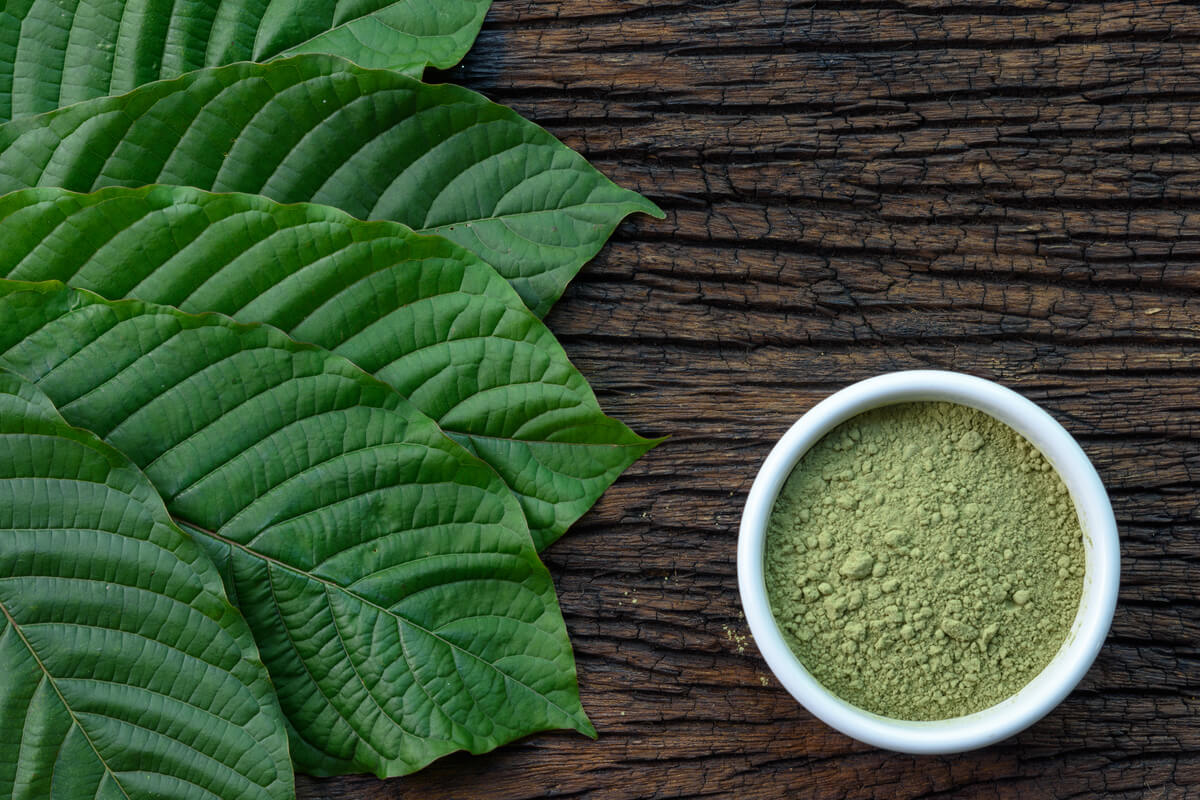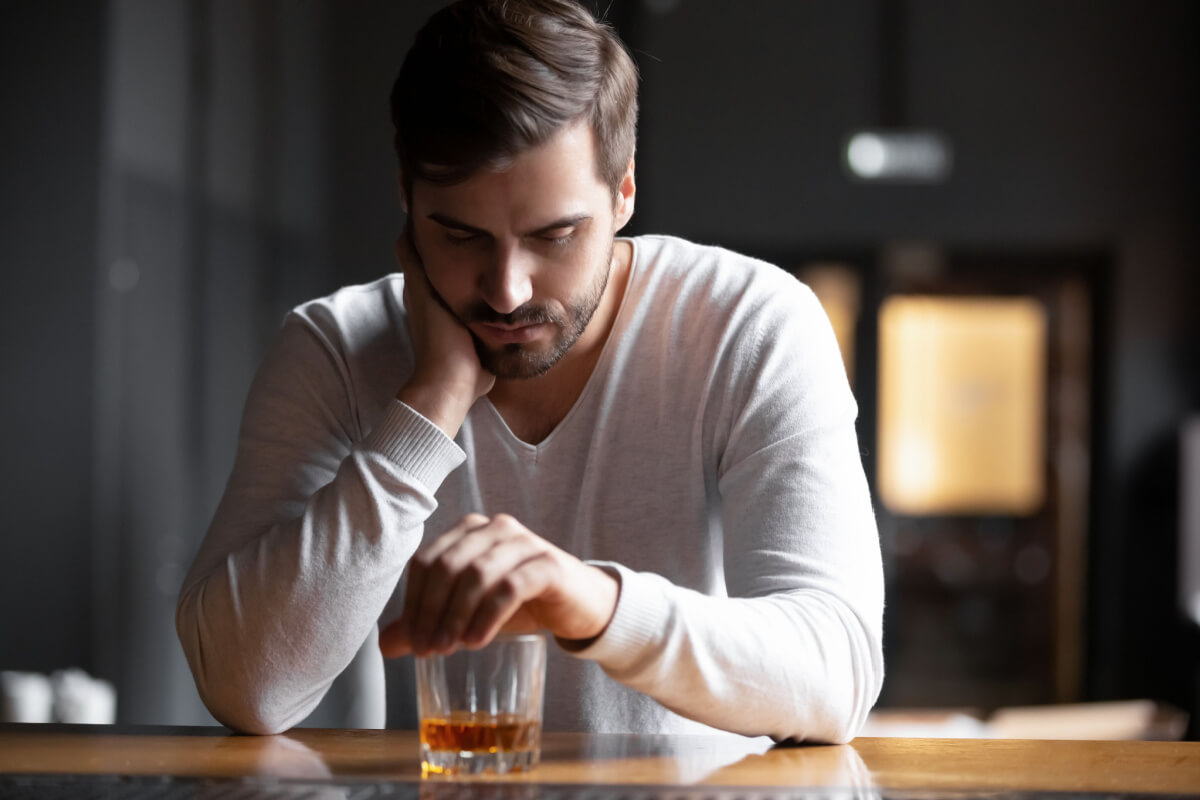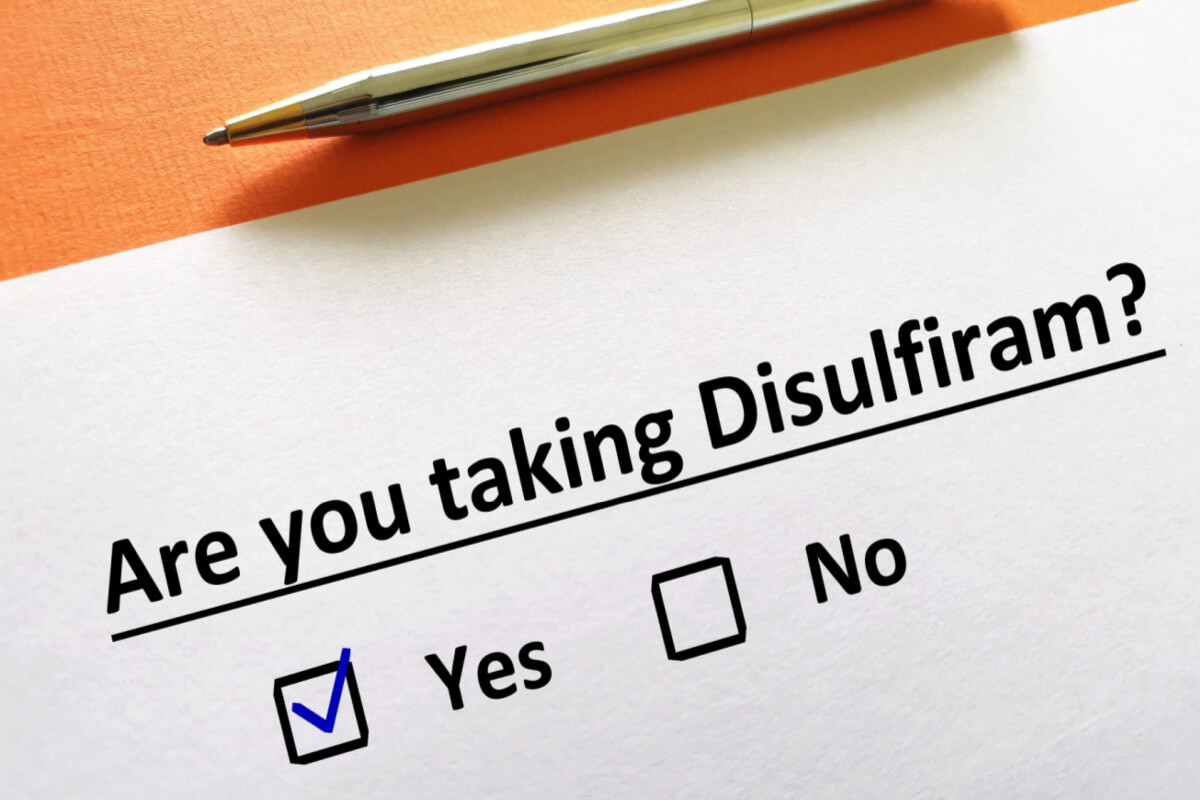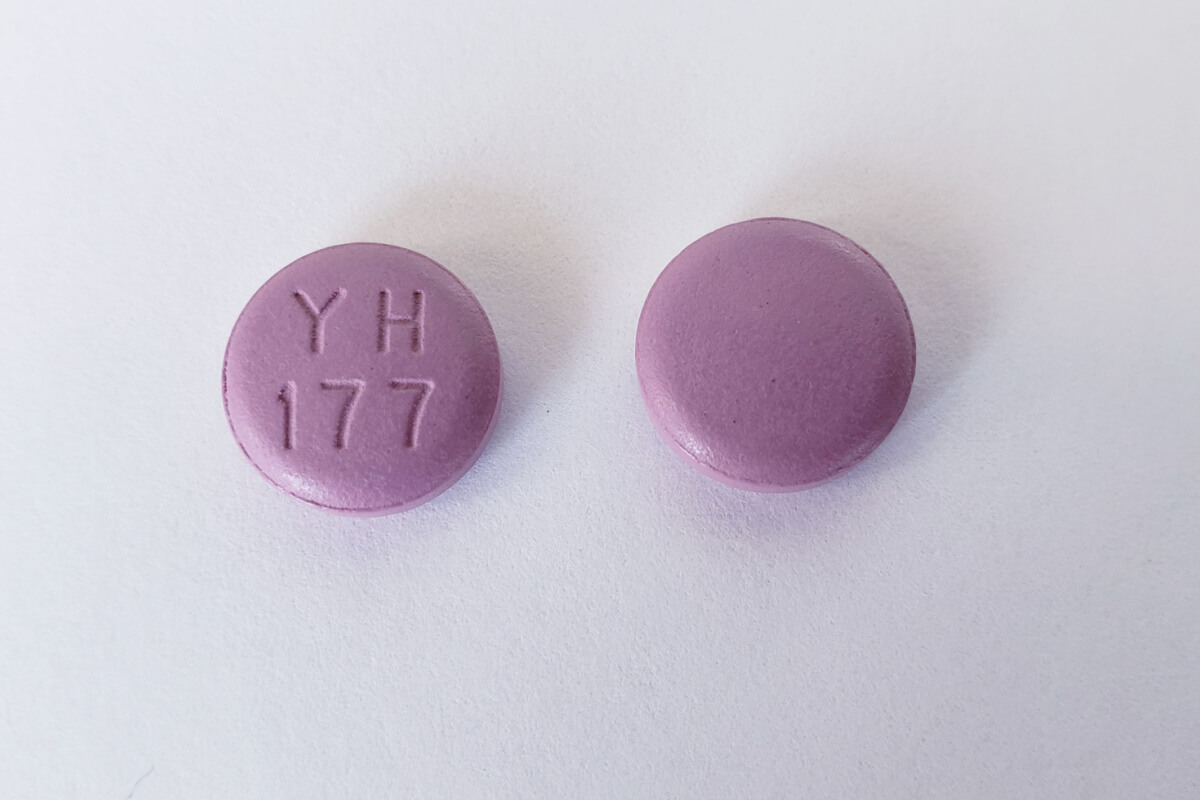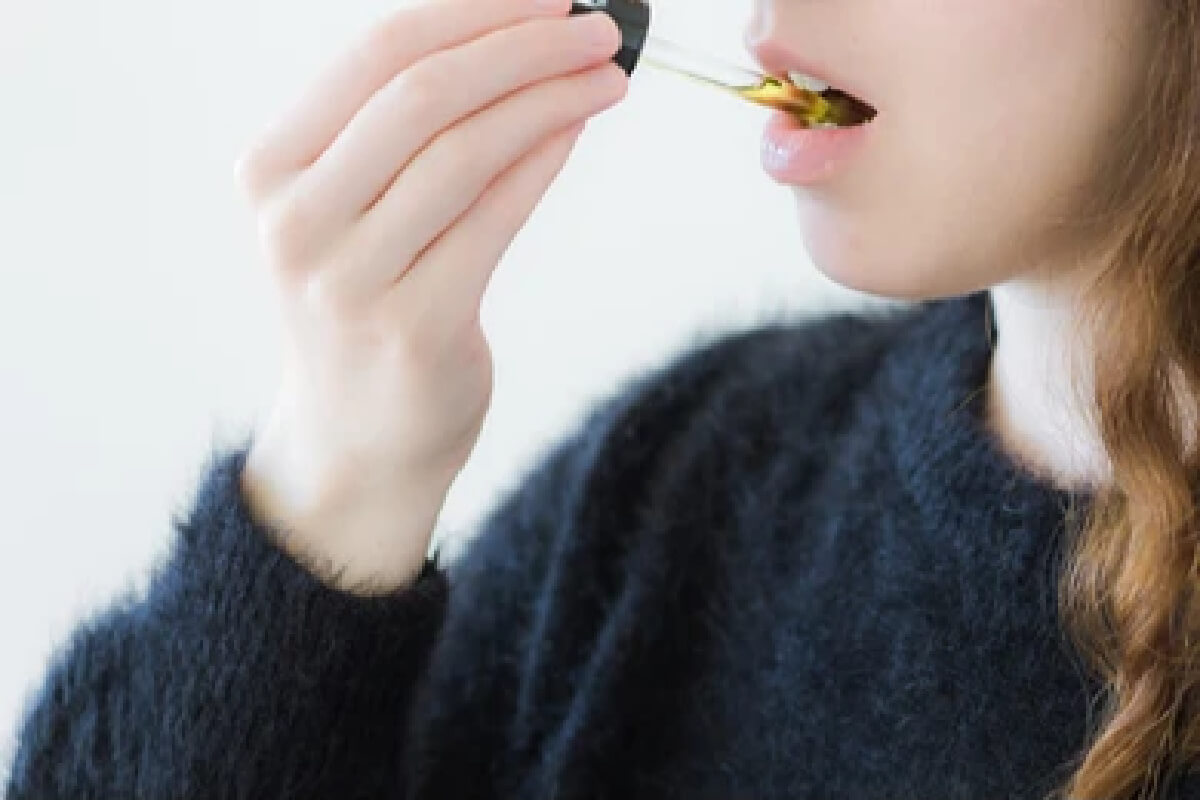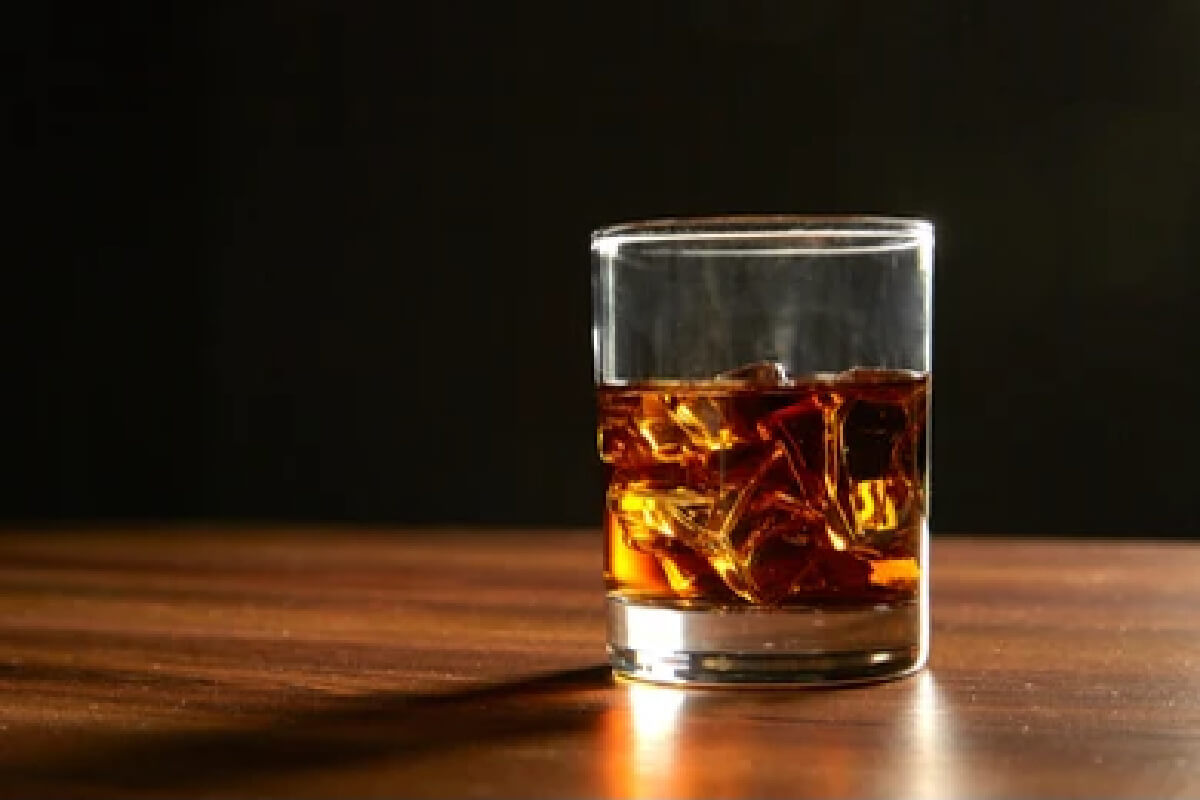
If you drink alcohol while on Antabuse, you will feel sick very quickly and stay that way for a while. You could also put your recovery at risk.
Antabuse is a prescription medication designed to make people feel incredibly sick when they drink alcohol. In theory, people with alcohol use disorder (AUD) will remember the sickness the next time they’re tempted to drink and help them resist the temptation.
It’s never smart to drink while on Antabuse. Within a few minutes, you’ll feel incredibly sick.
Talk to your team if you’re tempted to work around your Medication for Addiction Treatment (MAT) program. You may need more support to avoid the temptation to drink.

What Is Antabuse?
Antabuse is the brand name for the drug disulfiram. It works by blocking your body’s ability to metabolize alcohol.[1] Each sip you take allows toxins to build up inside your body, causing you to feel very sick. The more you drink, the worse you’ll feel.
Disulfiram is only available in tablet form that people take orally.[2] You can crush and mix the pills with a liquid like juice or water. Typically, you take your dose every day.
What Is Antabuse Used For?
Antabuse is prescribed as part of a MAT program. Your doctor determines your dose and offers the prescription, and you use counseling to help ensure you preserve your sobriety.
Experts consider disulfiram safe and effective for both short-term and long-term treatment of people who want to stop drinking. Skipping a dose could allow you to get drunk and jeopardize your recovery. If you’re tempted to skip, talk with your team first.
Mild-to-Moderate Risks of Drinking on Antabuse
Antabuse works by causing a “disulfiram-like reaction” if a person ingests alcohol after taking it. This serves as a deterrent to drinking.
Common Antabuse/alcohol reactions include the following:[1]
- Sweating
- Headaches
- Flushing
- Nausea
- Dizziness
Most people develop symptoms within 15 to 30 minutes of drinking alcohol. Your problems may peak after about an hour, but it might take several hours more before you feel like yourself again.
Severe Risks of Drinking on Antabuse
Disulfiram keeps alcohol from breaking down. As toxin levels rise inside your body, your organs are under pressure. Your heart struggles the most.
Some people develop severe symptoms, such as these:[3]
- Convulsions
- Fainting
- Heart palpitations
People can die due to these reactions. They’re strongest in people taking high doses of disulfiram and drinking a lot, but they’re a risk for anyone drinking while on Antabuse.
Don’t Drink on Disulfiram
If you’re tempted to test your MAT and slide back into drinking, talk to your medical team. You need more help to avoid a relapse, and your treatment team can help.
Drinking While on Antabuse FAQs
What will happen if you drink alcohol while taking Antabuse?
You’ll likely feel sick within about 15 to 30 minutes, and your symptoms may last for hours. The medication is designed to produce an unforgettable, unpleasant experience to prevent you from drinking in the future.
Can you get drunk on Antabuse?
The word drunk has a new meaning for people taking Antabuse. If you drink enough, you may get drunk, but you’ll also likely feel very sick, which isn’t the pleasant reaction you might hope for.
How long do I have to wait to drink after taking Antabuse?
Disulfiram builds in your tissues over time, and your organs need time to remove all traces of it. Experts say you can react to alcohol up to two weeks after quitting Antabuse.[1]
If you’re asking how soon you can drink, it’s a sign that you need an adjustment in your treatment. Talk to your therapist or supervising physician.

Reviewed By Peter Manza, PhD
Peter Manza, PhD received his BA in Psychology and Biology from the University of Rochester and his PhD in Integrative Neuroscience at Stony Brook University. He is currently working as a research scientist in Washington, DC. His research focuses on the role ... Read More
- Disulfiram. National Alliance on Mental Illness. https://www.nami.org/About-Mental-Illness/Treatments/Mental-Health-Medications/Types-of-Medication/Disulfiram. January 2021. Accessed February 2023.
- Disulfiram. StatPearls. https://www.ncbi.nlm.nih.gov/books/NBK459340/. October 2022. Accessed February 2023.
- New Zealand Data Sheet: Antabuse. New Zealand Medicines and Medical Devices Safety Authority. https://www.medsafe.govt.nz/profs/Datasheet/a/Antabusetab.pdf. June 2018. Accessed February 2023.
Download Our Free Program Guide
Learn about our program, its effectiveness and what to expect
Related articles
Imagine what’s possible on the other side of opioid use disorder.
Our science-backed approach boasts 95% of patients reporting no withdrawal symptoms at 7 days. We can help you achieve easier days and a happier future.
